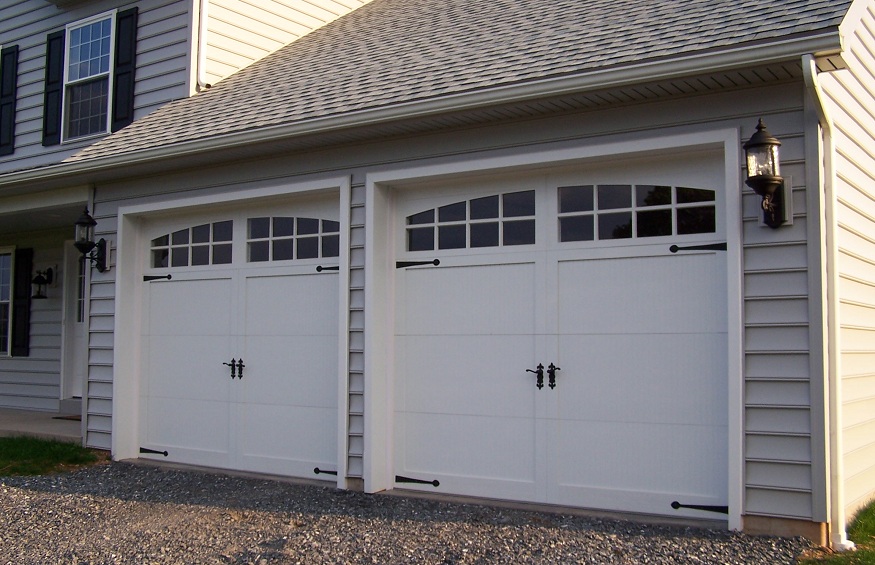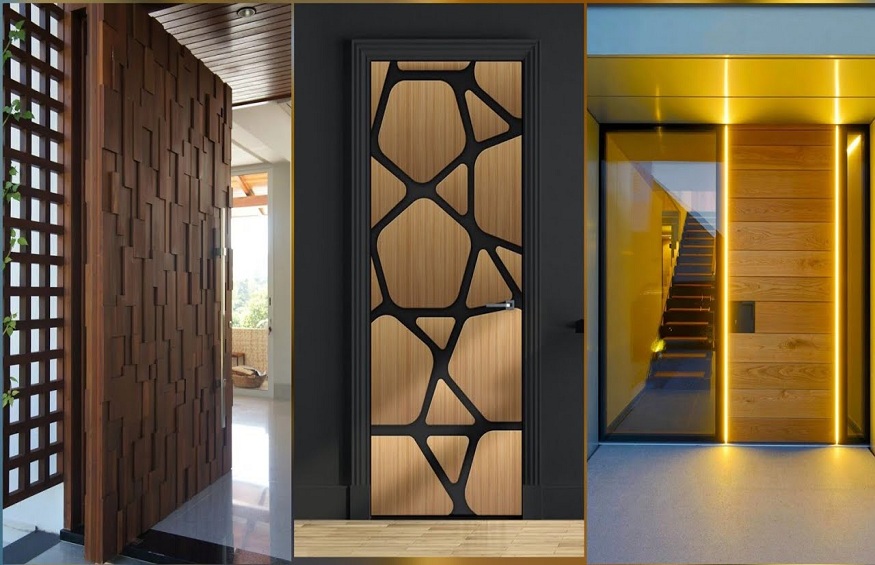Thinking of having your garage door installed or replaced ? A confusing and resolutely frustrating process, the purchase of a new garage door raises several questions whose answers must be found upstream of its selection. Indeed and while there are several types of garage doors, each with its own advantages and disadvantages .
How to make the right choice ? Through a presentation of each type, its advantages and disadvantages, find out which garage door should be your selection.
swing garage doors
Commonly called ” French doors “, swing garage doors are the most popular types of garage doors in France. In aluminium, wood, PVC or galvanized steel, they are resolutely safe and aesthetic while providing many advantages . The most appreciable being of course their opening on the outside, allowing not to encroach on the surface of your garage . In addition, they are not expensive and adaptable to the dimensions of your garage due to their different sizes and the models available on the market.
On the downside, however, swing garage doors are not known for their quality thermal insulation. Therefore, and if your garage is in direct contact with your home or houses delicate objects, you should choose a different model.
Roll-up garage doors
Roll -up garage doors are designed as a compact solution. They are usually constructed with corrugated steel panels. This allows the entire garage door to roll smoothly into a box directly above the garage opening. They do not have horizontal tracks leading to the back of the garage like retractable garage doors. Because of this, the extra space can allow for more overhead storage space in the garage. Also, the roof or attic access doors inside the garage will not be blocked.
You should know that roll-up garage doors are often more expensive than other types of garage doors. They are also very limited in terms of appearance. It is almost impossible to hide the lines of the corrugated sections of the doorThere is still an option which consists in completely changing But even then, there is only a small selection of models to choose from.
Sectional garage doors
Sectional garage doors are the most popular model on the market. These garage doors use both vertical tracks on the side of the garage and horizontal tracks on the ceiling of the garage. They are usually built with automatic garage door openers for quiet and smooth operation.
Sectional garage doors are halfway between single-panel designs and roll-up doors. They usually consist of 3 to 8 large panels that retract to the ceiling of the garage . This can limit overhead storage space in small garages. Nevertheless, the exterior vertical tracks of sectional garage doors allow you to maximize the width of the opening in your garage. They also provide the ability to insulate the interior of your garage to keep it warm in the winter and cool in the summer.
These garage doors are more expensive due to their well-considered design. They require multiple rails as well as a variety of parts to operate. Frequent lubrication and maintenance is essential to ensure the proper functioning of your garage door . Due to the popularity of sectional garage doors, there are many options when it comes to appearance.
Retractable garage doors
Like canopy garage doors, pocket garage doors are single panel. When opened, they fully retract into the garage. Unlike the awning garage door which partially hangs outside. The advantage of a pocket garage door is that it is designed specifically for electric operation . Indeed, it generally moves smoothly along horizontal rails which are guided towards the interior of the garage. Which reduces noise when opening and closing.
In addition, the retractable garage door requires more space in your garage than the other options. All have horizontal rails that run through the garage ceiling. Also, the automatic pocket garage door requires an overhanging garage door opener which reduces the height available in your garage. Its mechanism depends on several factors for its functioning. Therefore, this complexity can lead to a higher probability of failure.





